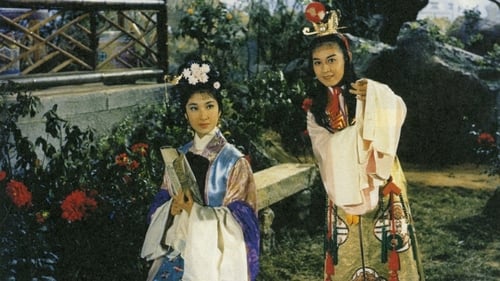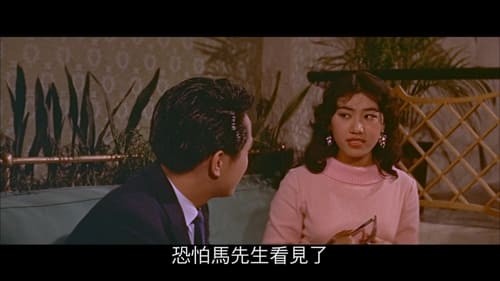
Vixen
FAIRY, GHOST, VIXEN (1965) consists of three fanciful tales that may be loosely classified as ghost stories, but they're presented and designed more along the lines of traditional fairy tales. They're beautifully staged and photographed and have a timeless quality about them with a moral at the end of each.

Gu Heng-Bo
Hong Kong drama directed by Wong Tin-Lam.

Prostitute Gui Hong
This gripping story centers on the romance between Wang Chin Lung and Sue San. Although they may be perfectly matched when it comes to their love for one other, the two come from remarkably different social ranks. While Chin Lung is the son of a respected government official, Su San is a prostitute, albeit a famous one.

Fairy
Adapted from one of China's most well-known fairy tales, the Goddess of Mount Hua falls in love with a young mortal scholar Liu Yanchang and gives birth to a baby son, Chenxiang. When Chenxiang grows up, he seeks to unravel the mystery surrounding his mother whom he has never met.

A widow of four gave up two of her children to be raised by an uncle in Singapore. Many years later, just when the widow, now a house maid, is feeling contented by good news of her long gone son and daughter, she accidentally runs into his own son, now a lawyer, and ends up being looked down upon by him. It was a story about how traditional Chinese family and its value was impacted by the change of time. The movie depicted Macau in 1945 to Hong Kong in the mid-60s, moving from poverty after WWII to opulence. The human relationships became complicated and fragile. Many elements uniquely "Hong Kong", such as upper class Chinese, western religions, English speaking and a mixed-culture society are used to contrast the traditional, kind, enduring and forgiving love of a mother.

Student
In this dreamy romance set in China during the fourth-century, a young woman convinces her parents to allow her to dress as a boy and attend university.

Zeng Ling
The winning couple of Linda Lin Dai and Peter Chen Hu light up the screen in the delightful Shaw Brothers musical Love Parade!

Qing Wen, Boa Yu's maid
The Ching Dynasty novel The Dream of The Red Chamber is not only the most widely read, but also the most filmed book in Chinese history. The sprawling love story has proven a challenge to many filmmakers, but this version is acclaimed as the most successful. A sumptuous feature which took three years of planning and another for production, it was a hugely popular and critical hit which still stands out as a classic of both 18th century literature and 1960s moviemaking.

Lady Chin
Perhaps the most notorious concubine in Chinese history, Yang Guifei set a pudgy standard of beauty in her days of glory during the Tang dynasty. The Emperor Minghuang was so besotted with the woman that when An Lushan stages his rebellion against the empire, the ruler takes Yang Guifei along with his imperial entourage in an escape to the mountainous area of modern-day Sichuan, and sanctuary of sorts. But the concubine had roused the jealousy of the court and unfortunately for her and to the great sorrow of the king, her brother and others among the king's retainers demanded she be strangled to death while they were still in the mountains. This is the story told in this interesting Taiwanese adaptation by director Li Han-hsiang (Li Hanxiang).

Socialite
Long unemployed and stone-broke, Shen Jiaguang is dealt a further blow when his wife Lu Xiaoyin has fallen seriously ill and their son Xiaoguang has to quit school.

Yin's dinner partner
Linda Lin Dai and Fanny Fan join the dancing troupe of Kao Pao-shu. Linda and Kao's son Peter Chen, manager of the troupe, have misunderstandings and dislike each other.








